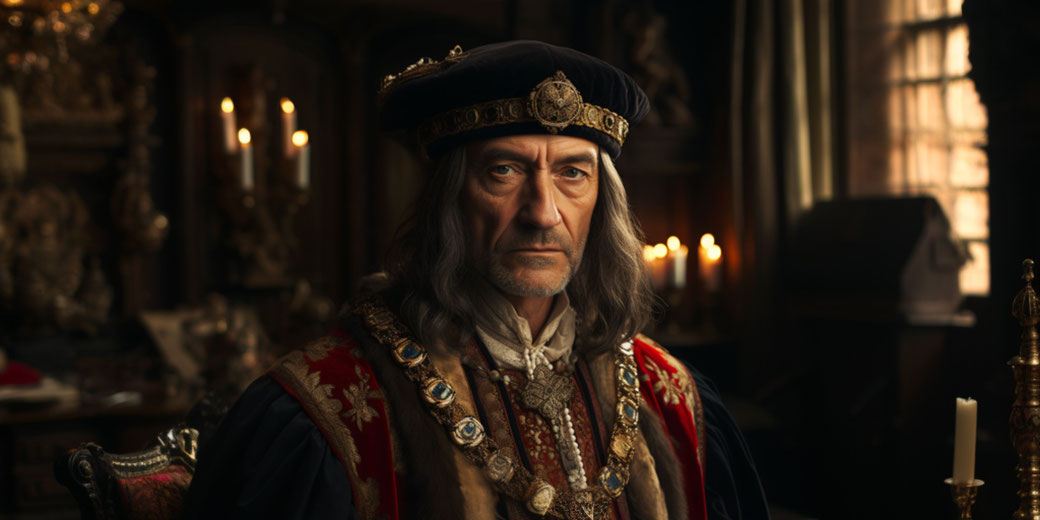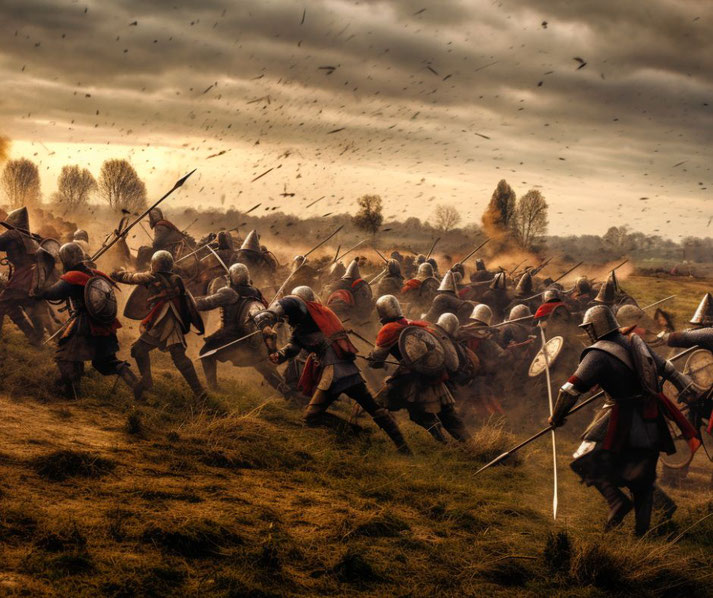How Henry VII seized the English throne and founded the Tudor dynasty

The late 15th century in England was a time of political upheaval and dynastic struggle. The Wars of the Roses, a series of civil wars between the rival houses of Lancaster and York, had left the country fractured and in need of a strong leader.
Enter Henry VII, the first monarch of the House of Tudor, who would not only end the Wars of the Roses but also lay the foundation for one of the most famous dynasties in English history.
Henry's early life and claim to the throne
Born on January 28, 1457, in Pembroke Castle, Wales, Henry Tudor was the son of Edmund Tudor, Earl of Richmond, and Margaret Beaufort.
His lineage gave him a tenuous claim to the English throne. Through his mother, he was a descendant of John of Gaunt, the third surviving son of King Edward III.
However, this lineage was through an illegitimate line, which made his claim to the throne weak.
For most of his early life, Henry lived in exile in Brittany, away from the political machinations and dangers of England.
The Battle of Bosworth and ascension to the throne
In 1485, seeing an opportunity to seize the throne from the unpopular Yorkist king, Richard III, Henry returned to England with a small army.
The two forces met at the Battle of Bosworth Field on August 22, 1485. In a decisive victory, Henry's forces defeated Richard's, leading to the death of the Yorkist king and marking the end of the Wars of the Roses.
Henry was crowned Henry VII on October 30, 1485, at Westminster Abbey.

Bringing stability back to England
One of Henry's first acts as king was to marry Elizabeth of York, daughter of Edward IV and niece of Richard III.
This union symbolically united the warring houses of Lancaster and York, and the combination of their respective red and white roses gave birth to the Tudor rose, a symbol of peace and unity.
Henry VII's reign was marked by his efforts to consolidate power and stabilize the English monarchy.
He established the Court of Star Chamber, which curtailed the power of the nobility and ensured royal control over the judicial system.
Economically, he implemented policies that filled the royal coffers, ensuring a stable financial base for the kingdom.

However, his reign was not without controversy. His heavy taxation policies, especially towards the end of his reign, were unpopular and led to several rebellions.
Yet, through a mix of diplomacy, strategic marriages, and occasional force, Henry managed to keep the peace and strengthen the monarchy.
Why is Henry VII still remembered today?
Henry's legacy is twofold. On one hand, he is remembered as the king who ended the Wars of the Roses and founded the Tudor dynasty.
On the other, he set the stage for the reign of his son, Henry VIII, and his granddaughter, Elizabeth I, both of whom would forever change the direction of English history.
Henry VII's reign marked a turning point in English history. From the ashes of civil war, he built a strong and centralized monarchy, setting the stage for the golden age of the Tudors.
While he may not be as famous as some of his descendants, his contributions to the stability and prosperity of England cannot be understated.
The first Tudor king, with his shrewd political acumen and vision, ensured that his dynasty would be remembered for centuries to come.
What do you need help with?
Download ready-to-use digital learning resources
Copyright © History Skills 2014-2024.
Contact via email
With the exception of links to external sites, some historical sources and extracts from specific publications, all content on this website is copyrighted by History Skills. This content may not be copied, republished or redistributed without written permission from the website creator. Please use the Contact page to obtain relevant permission.





